Robot artist Ai-Da paints at the Global Artificial Intelligence Summit in Geneva, Switzerland, May 30, 2024_Photo: THX/TTXVN
Concept and reality Global governance of artificial intelligence
Global governance of AI is a new approach that has not yet been unified, but it has the common implication of collective action and transnational cooperation to ensure responsible AI development. Scholars, such as Luciano Floridi and Josh Cowls, emphasize global governance as the development and management of legal standards, as well as ethical norms and policies for AI at the global level (1) . Many other studies contribute to the approach to AI governance by gathering diverse international perspectives, thereby ensuring comprehensive management of the global challenge of AI (2) . Thus, global governance of artificial intelligence can initially be understood as a multilateral cooperative effort towards building standards, norms and legal frameworks with global scope to guide the development of AI in an ethical and responsible manner, serving the interests of the international community and humanity.
At the global level , the second half of the first decade of the 21st century can be considered a turning point in the international discussion on AI governance, with AI becoming a separate topic of discussion on the agenda of a number of international institutions. In 2018, at the Group of Seven (G-7) Summit in Canada, the G-7 leaders issued the Charlevoix Vision for the Future of AI. On that basis, the Global Partnership on AI (GPAI) mechanism was established in 2020, with 29 member countries participating to date, the core of which are the G-7 countries and the Secretariat located at the Organization for Economic Cooperation and Development (OECD). In October 2023, the G-7 countries reached an agreement on the Hiroshima Process on AI, which includes two documents with many constructive standards on AI, namely the International Guiding Principles on AI and the AI Code of Conduct for AI Developers. Previously, in 2019, the OECD issued AI principles and established the AI Policy Unit (OECD AI), which also performed the function of the Secretariat for GPAI. In June 2019, the G-20 Summit held in Japan also issued a set of AI principles with similar content to the OECD's AI principles. In August 2023, the BRICS Group of Emerging Economies announced the establishment of an AI Study Group to promote AI development in member countries. Next, with the participation of more than 20 countries (3) , the first Global AI Safety Summit held in the UK (November 2023) adopted the Bletchley Declaration, emphasizing the goal of promoting a spirit of consensus and shared responsibility regarding opportunities, risks and progress in promoting international cooperation to ensure that AI is used in a “human-centered, trusted and responsible” manner.
In May 2024, the Second Global AI Summit held in South Korea issued the Seoul Declaration to promote safe, innovative and inclusive AI, emphasizing the need for interoperability between AI governance frameworks, using a risk-based approach to maximize benefits and minimize risks. The summit also achieved commitments from 16 major technology corporations, including Google, Amazon, Microsoft and Samsung Electronics, to develop safe AI (4) . Most recently, the Third Global AI Summit held in France (February 2025) changed its approach to encourage innovation rather than inhibit AI, and for the first time, energy issues were included in multilateral discussions on AI. The summit ended with 61 countries agreeing to sign a Joint Declaration on the need for “open, inclusive and ethical” AI (5) .
It can be seen that the United Nations is a place where many international multilateral forums are concentrated. where AI is discussed centrally and throughout. Particularly on the issue of AI in the military , in addition to the reports of the United Nations Group of Governmental Experts (GGE) recommending a number of principles on the use of AI in the military, there is also a Call for Action on the Responsible Use of AI in the Military Field adopted at the Summit on the Use of AI in the Military, held in The Hague (Netherlands, February 2023), with the participation of 56 countries (6) . The Declaration introduced by the US on the Responsible Use of AI in the Military Field at the conference has so far had 51 countries participating (7) . In December 2023, the United Nations General Assembly adopted the first Resolution on Lethal Autonomous Weapons (LAWS), proposed by Austria and a number of leading countries on LAWS, in which countries were asked to express their views on the issue of controlling LAWS. In 2021, the North Atlantic Treaty Organization (NATO) adopted the Principles for the Responsible Use of AI, part of NATO's common AI strategy.
To date, discussions at the United Nations on AI have become increasingly widespread, in many different aspects, such as development, ethical risks, human rights, implementation of the Sustainable Development Goals, information security and safety, etc. Within the framework of the United Nations, there have been a number of documents and papers on AI, notably the Framework on Ethics in the Use of AI adopted by member countries of the United NationsEducational , Scientific and Cultural Organization (UNESCO) in 2021. In July 2023, the United Nations Secretary-General established the High-Level Advisory Group on Artificial Intelligence (HLAB-AI), including 39 AI leaders from 33 countries, selected from more than 2,000 nominations. On September 19, 2024, HLAB-AI published the report "AI Governance for Humanity". Then, on September 22, 2024, at the Future Summit, the United Nations adopted the Global Digital Document (GDC), which includes the first truly universal agreement on AI governance at the global level to promote AI governance in a roadmap. Notably, the GDC calls on governments and the private sector to contribute to a global AI fund, allowing the majority of developing countries to benefit from technological advances. The GDC also supports the establishment of an International Scientific Panel and a Global Policy Dialogue on AI. For technology companies, the GDC calls for increased transparency and accountability of the system, especially in content moderation and user data processing. In addition, technology companies need to develop solutions and publicize their activities to combat potential harm from AI (8).
In general, discussions on AI are taking place in many multilateral forums related to AI technology aspects with a focus on mechanisms within the United Nations framework. According to some experts, the initial discussions have achieved some positive results, shaping some soft norms on AI (9) .
At the regional level, AI governance efforts are also on the agenda of regional organizations, such as the European Union (EU) and the Association of Southeast Asian Nations (ASEAN), etc. The European Union - an emerging international organization in the field of AI governance standards, has successively adopted the first law (March 13, 2024) and the first legal binding global treaty called the "Framework Convention on Artificial Intelligence" related to regulations governing the responsible use of AI, in compliance with legal regulations and respect for people's rights (May 17, 2024). In Southeast Asia, in January 2024, ASEAN adopted the ASEAN Guidelines on AI Governance and Ethics, which suggests the basic content of the management mechanism and encourages the development of AI at the national and regional levels.
At the national level, the development of AI and technology companies raises the issue of “digital sovereignty” of countries. formation, countries are seeking control over AI infrastructure through an institutional approach, while establishing control capacity through AI infrastructure in practice. By the end of 2021, the OECD AI Policy Observatory recorded more than 700 national AI policy initiatives from 60 countries and territories, setting out a vision to guide global AI governance efforts (10 ) . A report by the Brookings Institution analyzed AI governance plans in 34 countries and found that although the technology is in its early stages, a series of regulations with priorities and differences have emerged around the world ( 11) . Currently, the US and China are leading in AI research and development, followed by the UK and Israel. In particular, AI is currently a field of fierce competition between the US and China, as both sides are always trying to assert their leading position and influence in the world market. The acceleration of the "race" between countries to position their roles on the global AI technology map and the rapid progress of AI has made the need for global AI standards and regulations increasingly stronger (12) .
For the private sector , the world's leading AI developers have made voluntary commitments to respect AI safety principles. At a meeting with US President Joe Biden at the White House on July 21, 2023, seven leading US technology corporations, including Amazon, Anthropic, Google, Inflection AI, Meta, Microsoft and OpenAI, formally committed to complying with new standards of safety, security and trust. Similarly, eight leading global technology corporations and businesses, including Microsoft, Amazon Web Services, Anthropic, Open AI, Inflection AI, Meta, Google DeepMind and Mistral AI, agreed to "enhance" access to the UK's AI task force. Meanwhile, fully aware of the dangers of AI, Southeast Asian technology CEOs said that the world needs to do more to address potential risks from cyberattacks, misinformation and fraud (13) .
Challenges for global governance of artificial intelligence
Firstly, the world today still has no consensus on the concept of “responsible AI”, its content and implementation methods. In addition, there are legal challenges, such as the legal status of AI, legal liability in AI applications (civil, criminal, administrative liability), protection of personal data in AI applications, intellectual property rights in AI applications. These are considered issues that countries need to address in the coming time to apply AI effectively and responsibly (14) . In addition, although AI has been applied relatively widely in many fields, from military, medicine, technology, transportation, etc., there is currently no regulatory framework for AI in general or AI in specific fields.
Second, the process of building an AI governance framework at the national and global levels is difficult to keep up with the rapid development of technology in general and AI in particular. The pace of AI development is exceptionally fast. Compared to advanced technology, it is said to increase at a factor of 10 every year. The capacity of the most advanced AI models today is about 5 million times higher than it was 10 years ago. It is expected that in the next 5 years, the most developed AI models will have a number of "parameters" (units to measure the scale and complexity of AI) equivalent to the number of neurons in the human brain (15) .
Third, the adopted AI standards are all recommendations, not binding. To date, the only binding international regulation is the EU AI Law (officially effective from February 2, 2025). Other documents of international and interregional mechanisms are generally issued in the form of recommendations. For example, in 2021, with the approval of 193 UNESCO member states, the Recommendation on a Code of Conduct for AI, which is currently widely supported, is only a recommendation on the issue of a code of conduct in the field of AI authorized by UNESCO ( 16) .
Fourth, the level of depth in AI standards is still limited. Most of the existing declarations and commitments only state general principles, do not go into regulations on the development and use of AI in specific fields, and do not mention in detail the stages in the AI development process. The UNESCO Recommendation on AI is the most specific document addressing the issue of AI governance in general and AI-related fields, such as data policy, development, environment - ecosystem, gender equality, culture, education - research, information - communication, labor, health and welfare, monitoring the implementation of recommendations, etc., but it still does not fully cover the fields in international life; the international cooperation mechanism in monitoring and supervising the development and use of AI has not been mentioned.
Fifth, the benefits that AI can bring to countries as well as to corporations and technology businesses have a significant impact on the interests and policies of countries and policy-making groups. In July 2023, United Nations Secretary-General Antonio Guterres said that AI could help increase 10-15 trillion USD from now until 2030 (17) . The potential benefits brought by AI are huge, while many issues about AI are unclear, causing countries to be concerned about making and accepting international commitments. In addition, another concern is that overly strict regulations, although stemming from the desire to monitor, develop and use AI effectively, can hinder the innovation and development of AI.
Sixth, global governance of AI is currently heavily influenced by geopolitical factors, strategic competition between major powers, and even conflicts and sanctions. Currently, major powers are striving to achieve comprehensive AI dominance before reaching agreement and consensus on a common governance framework.
Seventh, AI standards or processes appear to be fragmented, especially those established among Western countries (G-7, OECD, EU); forums with broad participation of many countries (Bletchley Declaration, G-20) have increasingly general content. Differences in approaches to AI governance among major countries, between developed and developing countries are threatening the fragmentation of AI governance and hindering the achievement of consensus on building global universal AI standards. Western countries are relatively dominant in promoting AI trends and standards, due to their strengths in terms of international force, technology and resources. Developing countries currently have relatively little role in this process. Only seven countries (Canada, France, Germany, Italy, Japan, the UK and the US) participated in seven prominent AI initiatives (18) . In addition, many experts believe that to effectively regulate AI governance, the governance mechanism must cover all AI-related stages, from production, hardware, software, human resources, services; from AI suppliers to users... (19) . This prevents countries from reaching a common consensus on the approach to AI governance. A possible scenario is that countries will develop their own standards and regulations on AI. This difference in approach makes any progress towards global AI standards all the more difficult.
Eighth, the entities that control resources and expertise are AI technology corporations and enterprises. Moreover, in recent times, technology corporations and enterprises have generally been actively lobbying to limit international control, even at the national level, of AI development, reducing the binding nature of regulations at the national, regional, and international levels. On the other hand, due to awareness of the risks AI can create and the concern of public opinion in countries and internationally, many enterprises and corporations have recently made commitments and codes of conduct related to AI, but only on a voluntary basis.
Despite many limitations, many experts believe that in the coming time, there may be very rapid developments in shaping the global AI governance mechanism, with an increasing trend in terms of content and interest from countries; At the same time, many conferences and discussions on AI will take place towards a higher legal agreement at the global level, contributing significantly to promoting the shaping of international laws on AI.
Delegates attending the Paris AI Summit in France, February 11, 2025_Photo: THX/TTXVN
Some policy implications
Developing countries are under great pressure today to close the digital gap with developed countries, as well as to govern new frontier technologies such as AI. Governing frontier technologies such as AI requires strong investment in digital infrastructure, skills and knowledge - which developing countries often lacks. Expanding international cooperation and actively participating in global discussions on AI governance will help developing countries attract external resources, share experiences; at the same time, demonstrate national responsibility in the process of building a fair, comprehensive and inclusive AI regulation, in which developing countries also have equal access to advanced technology, education and opportunities in the field of AI.
Developing countries have a great opportunity to “take shortcuts and get ahead”, actively integrate and participate in international cooperation activities on AI governance at the regional and international levels, and learn from the world's good practices on AI governance to serve the national digital transformation process and sustainable development.
In Vietnam, efforts to research, develop and apply artificial intelligence have been realized through the “National Strategy on Research, Development and Application of Artificial Intelligence to 2030” issued on January 26, 2021, with the goal of promoting research, development and application of artificial intelligence, making artificial intelligence an important technology field of Vietnam in the Fourth Industrial Revolution. Thereby, gradually turning Vietnam into an innovation and AI center in the top 4 of the Association of Southeast Asian Nations (ASEAN) and the top 50 of the world; at the same time, gradually turning Vietnam into a “bright spot” in research, development and application of AI on the world AI map.
Most recently, Resolution No. 57-NQ/TW, dated December 22, 2024, of the Politburo, "On breakthroughs in science, technology, innovation and national digital transformation development" identifies science, technology, innovation and national digital transformation development as the top important breakthrough. On January 13, 2025, speaking at the National Conference on Breakthroughs in Science, Technology, Innovation and National Digital Transformation, General Secretary To Lam emphasized that science and technology is the "golden key" to realize the nation's aspirations for strength and prosperity (20) , so the Government needs to innovate the budget allocation plan for science, technology, innovation and national digital transformation development..., allocate at least 3% of the budget to carry out this task and continue to increase the spending ratio for science and technology to 2% of GDP in the next 5 years (21) . General Secretary To Lam also directed to promote the maximum development of the data sector so that Vietnam can become a digital nation with digital governance, digital economy, and developed digital society, because data has become "new energy", even the "blood" of the digital economy and "it is necessary to build a national open AI platform to help businesses easily access AI applications and note that it is Vietnamese AI" (22) . Developing and applying AI technology is considered a lever to promote national digital transformation.
In addition, developing countries need to research and build “brands” in the fields of science and technology in general, data and AI in particular, to be able to compete in the international market. The increasingly active integration of developing countries in the fields of science and technology in general, data and AI in particular, to be able to compete in the international market is increasingly showing the importance of this.
An important event showing a positive signal in this direction is Vietnam hosting the International Conference on “Artificial Intelligence and Semiconductors 2025” (AISC 2025) in March 2025, with the theme “Building the Future: Connecting AI and Global Semiconductor Technology” with the participation of about 1,000 delegates, including world-leading technology leaders and experts from Google, NVIDIA, Meta, TSMC, Samsung, MediaTek, Tokyo Electron, Panasonic, Qorvo, Marvell, ... and technology corporations headquartered in Silicon Valley (USA) to promote international cooperation and scientific research combining AI and semiconductors. Hosting the event and the presence of world-leading technology leaders and experts have affirmed Vietnam's new role and position in the global semiconductor and AI industry value chain. The International Conference on “Artificial Intelligence and Semiconductors 2025” is also the venue for the announcement of Vietnamese organizations officially joining the global AI alliance founded by IBM, Aitomatic Meta, AMD, Intel and leading technology institutes, currently gathering more than 140 members from 25 countries, with the mission of promoting open innovation in AI development (23) . Speaking at AISC 2025, Dr. Christopher Nguyen, founder of Aitomatic Group, commented that the efforts of the Vietnamese government in promoting AI and semiconductor development are showing the right direction, in line with the shifting trend of the global technology value chain. The AISC 2025 Conference shows the strong interest of the international community, affirming the attractiveness of Vietnam as a strategic destination in the high-tech sector (24) . Another positive signal is that according to the e-Conomy SEA Report 2023 by Google Technology Group (USA) and Temasek Investment Group (Singapore), Vietnam's digital economy is expected to reach about 45 billion USD by 2025, with AI technology playing a major role in this growth (25) .
It can be seen that global governance of AI is still in its early stages and developing countries are actively and proactively participating in this “playground”. To protect the common interests and future development of humanity, countries, international organizations, multinational corporations and global non-governmental organizations need to cooperate to reach agreement on global AI governance guidelines to promote the potential and benefits of AI, while addressing the challenges and risks from AI applications. The formation of a harmonized framework of regulations and standards developed through international cooperation forums, according to many experts, will contribute to multilateral AI governance in the future. This framework will prioritize considerations of ethics, data privacy and human rights, while promoting innovation and stakeholder participation (26) . With this approach, international cooperation on AI regulation can lead to wider diffusion of innovation, creating a comprehensive solution to the global challenge the world is facing./.
--------------------
* This study is the result of the topic "Vietnam's diplomacy in the period 2016 - 2026" under the key ministerial research program "Summary of 40 years of diplomatic history (1986 - 2026)"
(1) Luciano Floridi: “What the Near Future of Artificial Intelligence Could Be”, Philosophy & Technology , No. 32, March 2019, pp. 1 - 15; Luciano Floridi - Josh Cowls: “A Unified Framework of Five Principles for AI in Society”, SSRN, April 2021, https://hdsr.mitpress.mit.edu/pub/l0jsh9d1/release/8
(2) Maral Niazi: “Conceptualizing Global Governance of AI”, Center for International Governance Innovation , February 27, 2024, https://www.cigionline.org/publications/conceptualizing-global-governance-of-ai/
(3) In addition to Western countries, there is participation from China, India, Brazil, Indonesia, Singapore...
(4) PAT (NASATI): “AI Summit in Korea”, Electronic Information Portal of the Department of Information and Statistics, Ministry of Science and Technology (NASTI) , May 23, 2024, https://www.vista.gov.vn/vi/news/cac-linh-vuc-khoa-hoc-va-cong-nghe/hoi-nghi-thuong-dinh-ve-ai-tai-han-quoc-8611.html
(5) VNA: “61 countries adopt joint statement on the need for artificial intelligence”, Nhan Dan Online Newspaper , February 12, 2025, https://nhandan.vn/61-quoc-gia-thong-qua-tuyen-bo-chung-ve-nhu-cau-tri-tue-nhan-tao-post859609.html
(6) See: “REAIM 2023” (Responsible Use of AI in Military Areas Summit 2023”, The Hague (HF Lan) , February 2023, https://www.government.nl/ministries/ministry-of-foreign-affairs/activiteiten/reaim
(7) See: “Political Declaration on Responsible Military Use of Artificial Intelligence and Autonomy,” Bureau of Arms Control, Deterrence and Stability , November 1, 2023, https://www.state.gov/political-declaration-on-responsible-military-use-of-artificial-intelligence-and-autonomy/
(8) See: Aimee Bataclan: “PAI, the UN, and Global AI Governance: Aligning Policies for People and Society,” Partnership on AI , September 25, 2024, https://partnershiponai.org/pai-the-un-and-global-ai-governance-aligning-policies-for-people-and-society/
(9) Lucía Gamboa - Evi Fuelle: “UN Report: What does it mean for global governance?”, Credo Al, September 12, 2024, https://www.credo.ai/blog/un-report-what-does-it-mean-for-global-governance-2
(10) “Policies, data and analysis for trusted artificial intelligence”, OECD. AI Policy Observatory, 2025, https://oecd.ai
(11) “Analyzing artificial intelligence plans in 34 countries”, Brookings Institution , May 13, 2021, https://www.brookings.edu/articles/analyzing-artificial-intelligence-plans-in-34-countries/
(12) “Global Artificial Intelligence Race”, Nhan Dan Newspaper , April 11, 2023, https://nhandan.vn/chu-de/cuoc-dua-tri-tue-nhan-tao-toan-cau-704622.html
(13) Cam Anh: “Global businesses await regulatory framework on AI”, Business Forum Magazine, VCCI , December 26, 2023, https://diendandoanhnghiep.vn/doanh-nghiep-toan-cau-cho-don-khung-quy-dinh-ve-ai-256764.html
(14) “Global artificial intelligence governance: A long step forward from Bletchley to Seoul”, Vietnamnet , May 26, 2024, https://www.vietnamplus.vn/quan-tri-tri-tue-nhan-tao-toan-cau-buoc-tien-dai-tu-bletchley//-toi-seoul-post955404.vnp
(15) Ian Bremmer - Mustafa Suleyman: “The AI Power Paradox: Can States Learn to Govern Artificial Intelligence - Before It's Too Late?”, Foreign Affairs , August 16, 2023, https://www.foreignaffairs.com/world/artificial-intelligence-power-paradox?check_logged_in=1
(16) UNESCO: “ Recommendation on the Ethics of Artificial Intelligence”, United Nations Educational, Scientific and Cultural Organization , November 23, 2021, https://unesdoc.unesco.org/ark:/48223/pf0000381137/PDF/381137eng.pdf.multi
(17) See: Jared Cohen - George Lee: “The generative world order: AI, geopolitics, and power”, Goldman Sachs , December 14, 2023, https://www.goldmansachs.com/intelligence/pages/the-generative-world-order-ai-geopolitics-and-power.html
(18) Edith M. Lederer: “UN experts urge United Nations to lay foundations for global governance of artificial intelligence”, Independent , September 20, 2024, https://www.independent.co.uk/news/ap-antonio-guterres-international-atomic-energy-agency-european-union-california-b2615991.html
(19) Ian Bremmer - Mustafa Suleyman: “The AI Power Paradox: Can States Learn to Govern Artificial Intelligence - Before It's Too Late?”, Ibid .
(20) See: “Speech by General Secretary To Lam at the National Conference on Breakthroughs in Science, Technology, Innovation and National Digital Transformation”, Government Electronic Newspaper , January 13, 2025, https://baochinhphu.vn/phat-bieu-cua-tong-bi-thu-to-lam-tai-hoi-nghi-toan-quoc-ve-dot-pha-phat-trien-khoa-hoc-cong-nghe-doi-moi-sang-tao-va-chuyen-doi-so-quoc-gia-102250113125610712.htm
(21) See: “Speech by General Secretary To Lam at the National Conference on Breakthroughs in Science, Technology, Innovation and National Digital Transformation”, Tldd
(22) “General Secretary To Lam: Maximum support for the development of the data sector”, Vietnam News Agency , March 22, 2025, https://www.vietnamplus.vn/tong-bi-thu-to-lam-ho-tro-toi-da-cho-su-phat-trien-cua-linh-vuc-du-lieu-post1022056.vnp
(23) See: To Ha - Van Toan: "More than 1,000 leaders, technology and AI experts will come to Vietnam to attend AISC 2025", Nhan Dan Electronic Newspaper , February 24, 2025, https://nhandan.vn/hon-1000-lanh-dao-chuyen-gia-cong-nghe-va-ai-se-den-viet-nam-tham-du-aisc-2025-post861395.html
(24) See: To Ha: “Vietnam's new position in the global semiconductor industry value chain”, Nhan Dan Electronic Newspaper , March 12, 2025, https://nhandan.vn/vi-the-moi-cua-viet-nam-trong-chuoi-gia-tri-nganh-cong-nghiep-ban-dan-toan-cau-post864611.html
(25) Duc Thien: "Vietnam is shifting to AI", Tuoi Tre Electronic Newspaper , March 7, 2025, https://tuoitre.vn/viet-nam-dang-chuyen-dich-sang-ai-20250307081510146.htm
(26) Maral Niazi: “Conceptualizing Global Governance of AI”, ibid.
Source: https://tapchicongsan.org.vn/web/guest/the-gioi-van-de-su-kien/-/2018/1102002/quan-tri-toan-cau-ve-tri-tue-nhan-tao--thuc-trang%2C-thach-thuc-and-mot-so-ham-y-chinh-sach.aspx


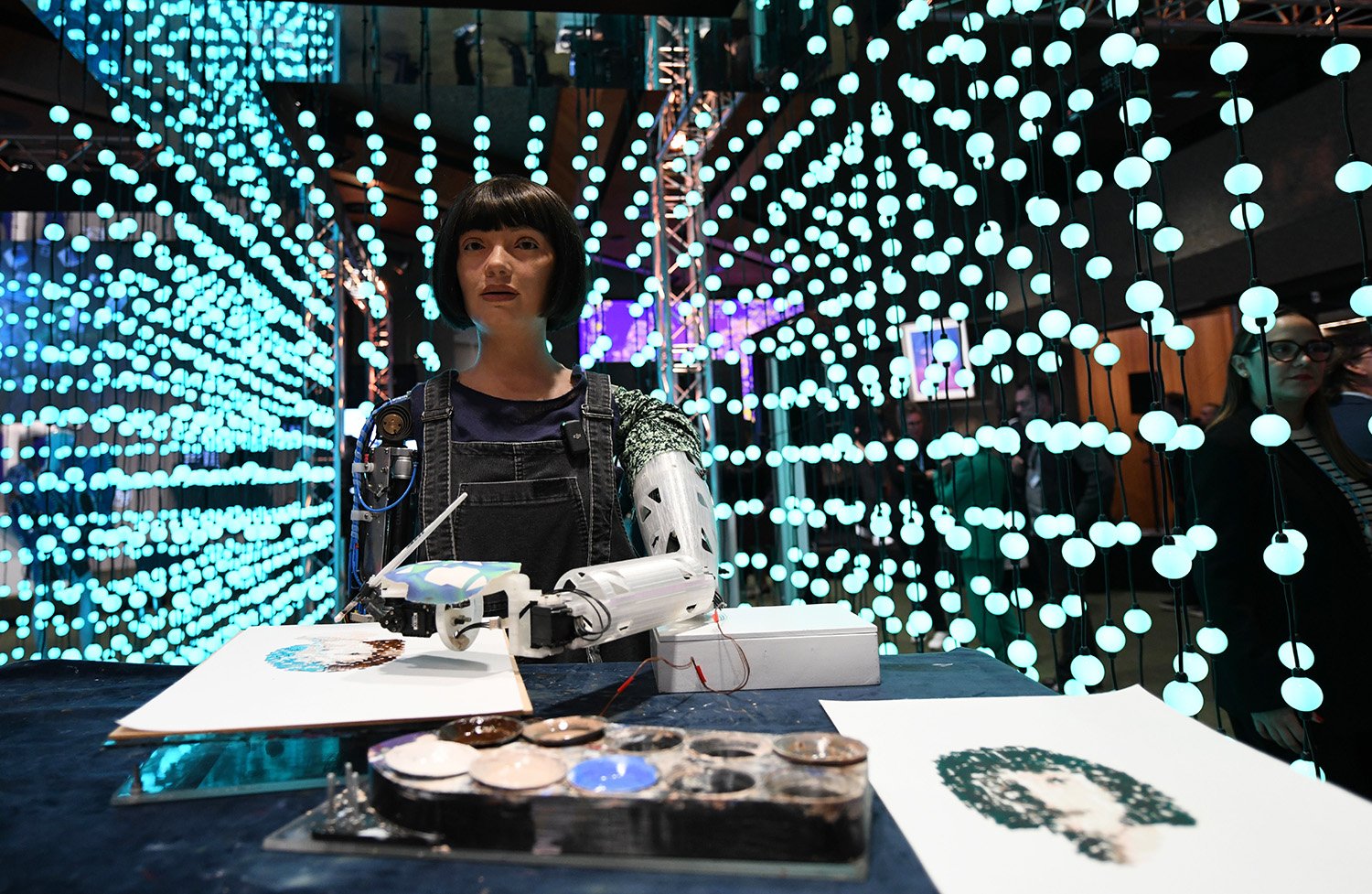
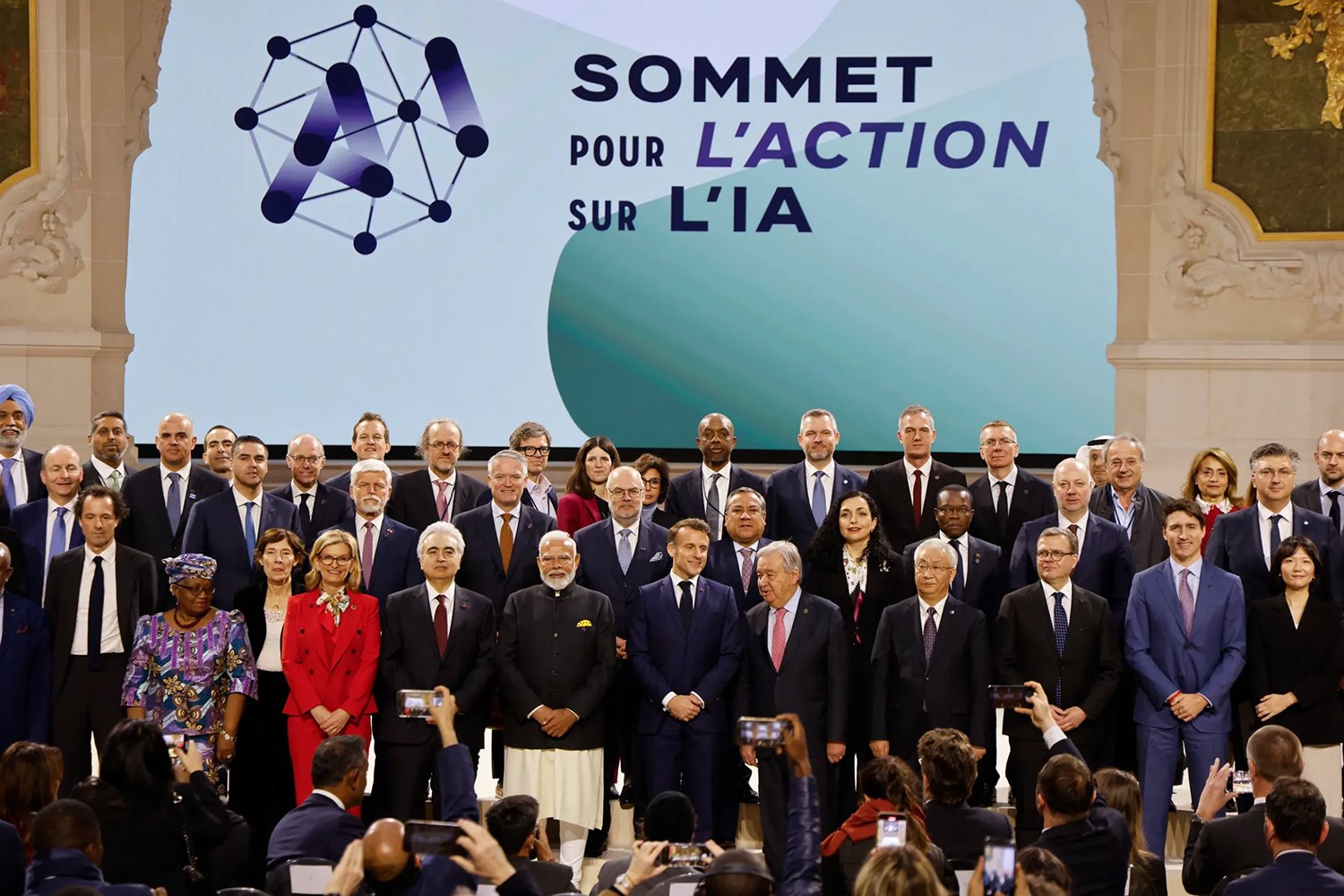






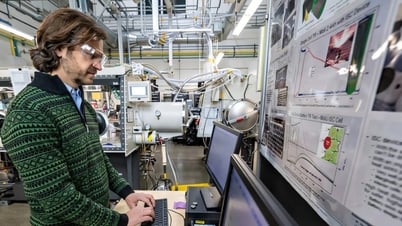

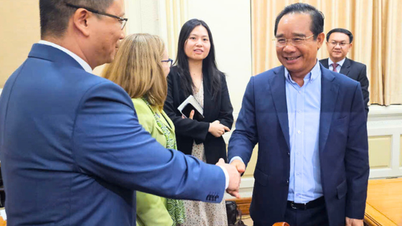

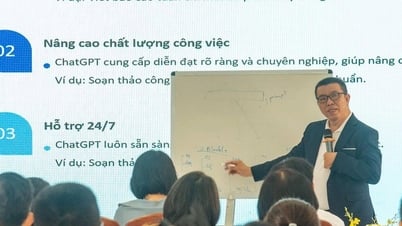




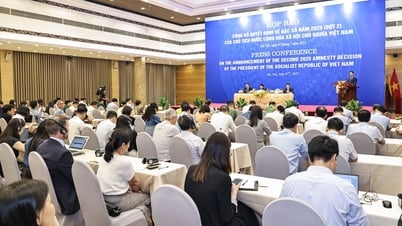

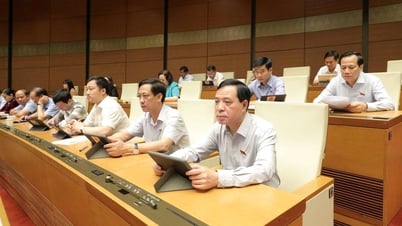



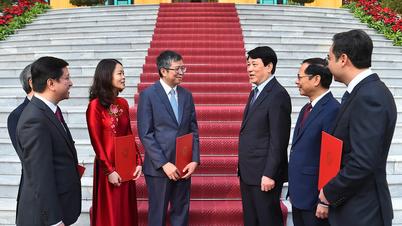
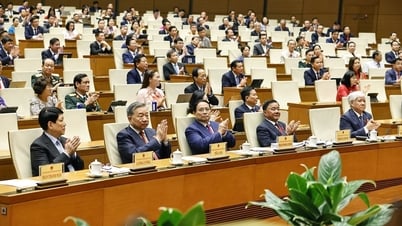
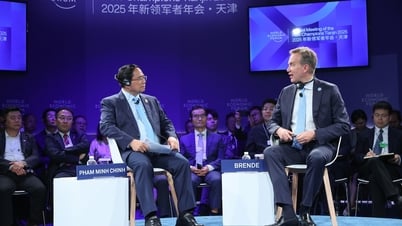







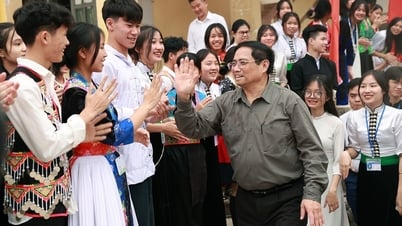



































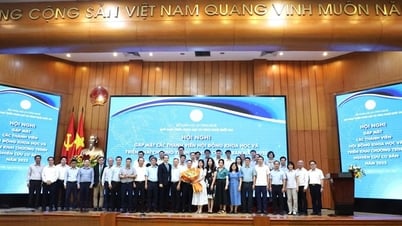




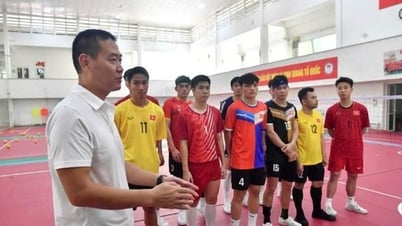

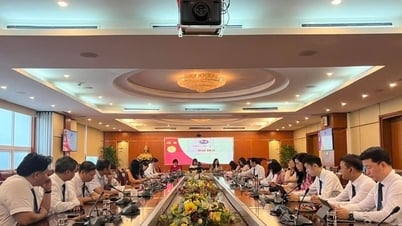
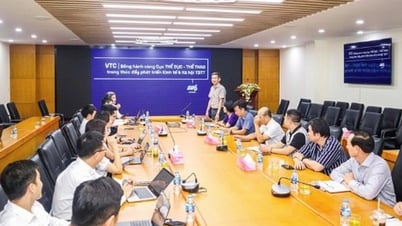






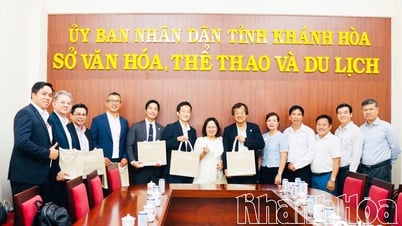













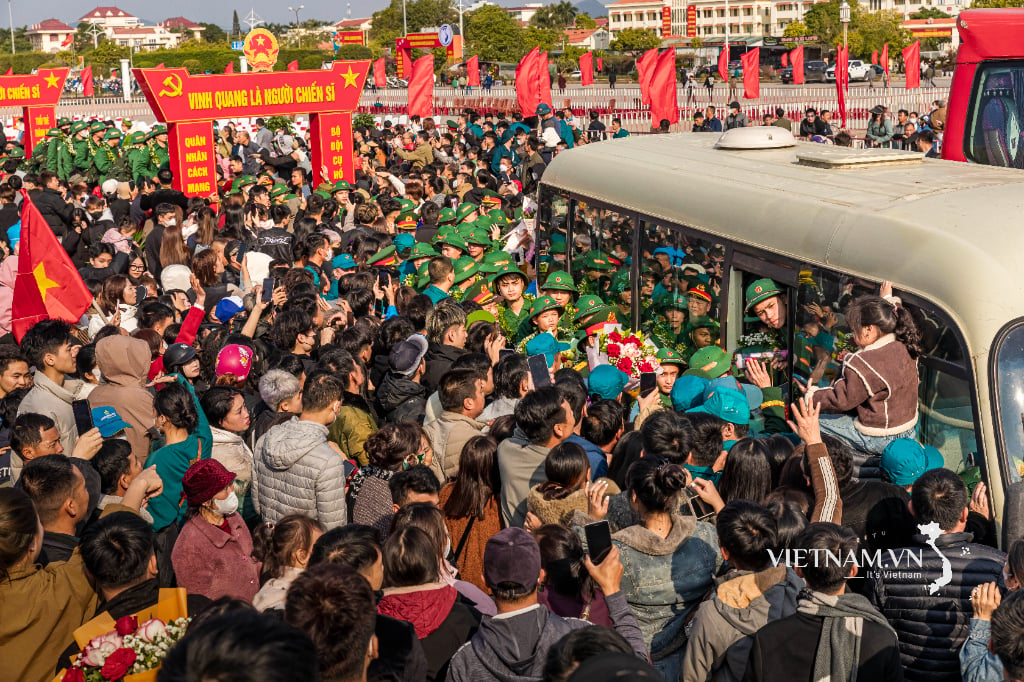


Comment (0)